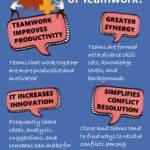
What is Emotional Intelligence in Leadership?
Emotional intelligence in leadership is referred to as the ability to understand and manage one’s emotions, as well as recognize and control others’ emotions and perspectives.
The most effective leaders consider emotional intelligence a critical skill to recognize and solve their team members’ problems. That’s why emotional intelligence is an important part of many leadership styles.
Interestingly, emotional intelligence is a great parameter to check a leadership style’s effectiveness. Experts believe that intelligence quotient (IQ), technical skills, and communication skills are irrelevant if a leader lacks emotional intelligence.
The growing importance of emotional intelligence has forced many leaders to learn and implement it into their leadership style to incite innovation, job satisfaction, and a positive working environment in their company.
What is the Importance?
While many leaders have prolific technical and communication skills, they lack emotional intelligence. As leaders set the organization’s tone, emotional intelligence becomes an inevitable part of the skill set.
An organization led by a leader who lacks emotional intelligence cannot survive the tide of the complex business environment. Here’s why emotional intelligence is important:
- Emotional intelligence develops a positive work culture in the organization, which vicariously increases efficiency and productivity.
- It instigates growth, innovation, and creativity in the organization and team members.
- It constantly motivates team members and leaders to put their best foot forward.
- Emotional intelligence helps leaders and employees make the right decisions in difficult times.
- It develops a strong bond between a leader and their team.
What Are the Components?
We’ve listed below the components of emotional intelligence in leadership:
Self-awareness
It refers to the ability to understand one’s strengths and weaknesses. Furthermore, being self-aware makes a leader control their emotion, which helps them understand complex emotions that affect their team members.
Moreover, leaders need to be self-aware of their abilities to guide and control a team. It helps them make sound and profitable decisions that bring prosperity to the company and instigate personal growth among team members. There is no litmus test to evaluate if an individual is self-aware or not, but 360-degree feedback is the best way to estimate the self-awareness quotient of a leader. In addition to it, being conscious of one’s behaviour is another way to check the self-awareness quotient.
Self-management
Self-management is a vital component of emotional intelligence that plays a significant role in challenging business situations. It refers to the ability of leaders to manage their emotions during a difficult situation. It also refers to the positive outlook a leader maintains in adversities. Therefore, self-management is an imperative and inevitable part of a leadership style.
It equips a leader with ways to tackle a difficult situation. In addition, it teaches them how to react in a predicament, emphasizing mental peace and a calm attitude.
Social awareness
A business organization does not operate in solitude; therefore, leaders must be aware of their business environment. Moreover, it helps them formulate business strategies and implement plans to adapt their employees to heterogeneous market conditions, among others.
However, social awareness is not limited to external factors. It also refers to a leader’s capability to understand and manage the emotions of people acting inside an organization. Therefore, leaders who excel in social awareness practice empathy. It helps them understand the perspective and emotions of others, enabling them to communicate and collaborate effectively.
Interestingly, empathy is a critical leadership skill that leaders adopt across industries. Experts believe that empathic leaders are effective and influential because they understand human behaviour and cognition.
Relationship management
Relationship management consists of abilities nestled by a leader that help them play an active role in resolving conflicts, mentoring, influencing, and coaching their team members. It also refers to a leader’s ability to keep conflicts and miscommunication to the bay of the organization. Employees prefer business enterprises with fewer conflicts because it increases job satisfaction and growth. Therefore, maintaining peace between all parties of the organization is one of the main functions of a leader.
(Reference: https://emeritus.org/)


